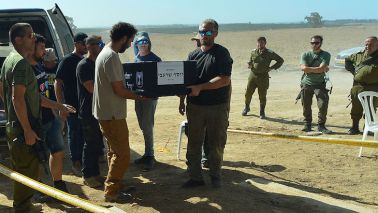Die Walküre
Mariinsky Opera at Covent Garden
When the Mariinsky Opera, under its ultra-hyperactive chief Valery Gergiev, brought its touring Ring to Cardiff in 2006, it was the low point of my life as an opera-goer, with, it is fair to say, no redeeming feature. After strong criticism from many people in many places, the production has been considerably altered, but since Gergiev makes a point of performing the cycle in four days, there are still many changes of cast for the main roles, and the singers involved are not, mainly, Wagnerians, nor German speakers. They have to live at the hectic pace that Gergiev insists on, decisions as to who will sing in which performance are left till late in the day, and the whole thing has an improvised feel. I couldn’t face going to the complete cycle, so I chose Die Walküre on the basis that it is the least likely to be an utter fiasco.
And it wasn’t. Act I, alas, was. This miraculously new music is extraordinarily hard to bring off: when it is successfully performed, it is overwhelming, but I have only heard three or four conductors, in the theatre or on record, who have managed that: Furtwängler, on his EMI studio recording, remains the unsurpassable master. This music of hesitation, anxiety, slowly growing desire and ecstatic release is full of pauses, intense silences, sudden surges and withdrawals. It can easily collapse a dozen times in just over an hour, and under Gergiev it collapsed two dozen times. Orchestral balances were bizarre, there was a wildly over-enthusiastic timpanist, and raucous climaxes came from nowhere and soon retreated nowhere too. The singers needed all the help they could get, but received none.
Mlada Khudoley, a demented windmill of a Sieglinde, was so distracting to look at that one almost didn’t notice how unreliable her singing was. Avgust Amonov as her lover-twin Siegmund was no inspiration, a man chronically short of breath, producing unmarked pianissimi because he had run out of wind. Between them strode the absurd Hunding of Gennady Bezzubenkov, accompanied by a set of creatures mostly unknown to biology or mythology, but creeping around as servers, and leaving the twins quite unperturbed. The set for this act, monumental and insubstantial, consists of giant headless men with wires sticking out of their necks, and a kind of vast pincushion. All are prone to being lit up in hideous colours at random moments. This was as bad as Cardiff.
With Act II there was a very marked improvement, thanks above all to the sensationally sung Brünnhilde of Olga Savova. At last, after I don’t know how many years, I was thrilled by the impact of a big, sharply focused soprano voice, rich in the lower register — she is also singing Waltraute in Götterdämmerung — and with powerful top notes; also good pronunciation. She saved the day — but there are two different singers for the role in the last two dramas. One can only hope that she is taken up by Western companies and given a chance to thrill and move us in more reliable circumstances. She warned Wotan about the approach of Fricka, and well she might do, when one sees and hears Larissa Diadkova. Wearing a large white tea cosy on her head, she held forth implacably in Esperanto, until Wotan gave way — for once a relief; Diadkova should get back to being Azucena. Wotan was Mikhail Kit, a 59-year-old veteran of the company, and sounding every day of it. He is a tremendous professional, though, and he managed to get through the part, but it was only in quiet passages that he made an impression. The scene between Wotan and Brünnhilde when she begs him to tell her his woes was incredibly moving and, whoever was inspiring whom, the orchestra played magically as well. Wotan’s narration, taken very deliberately, went well, and so did the Annunciation of Death, where Savova was both commanding and tender. But Kit’s limited vocal resources meant that he had to fake his climaxes, and perhaps out of sympathy Gergiev had the orchestra playing loudly enough to drown them even if his voice had been adequate for them. It was a marvellous experience, as this act needs to be, the pivotal act of the whole cycle, and to me the most moving.
The performances are scheduled on a lavish scale, with Bayreuth-length intervals. That wasn’t enough, however, and it ran 45 minutes late, till 11.10 (it started at 5) instead of the announced 10.25. That meant I had to creep out of the theatre, enraged that a visiting company should assume, as the resident company does, that any members of its audience worth bothering with live in London; and of course far too grand to take any notice of a train strike. Perhaps, if you can afford £840 for the Ring, that is right.





Comments